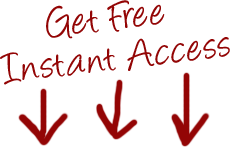Protein Facts: Get the Facts About Protein to help Build Muscle and Burn Fat
A business relies on solid facts and data to succeed, and so should you. Protein facts are extremely important if your muscle building and fat burning programs are going to succeed.
If you ask "How do I build muscle?" or "How do I burn fat?" you will most likely get two answers.
- Begin an exercise or weight lifting routine.
- Eat more protein.
Answer number one is a given. This is your process to build your muscle and burn fat - to build your "business." It is essential to add a weight training to build muscle, and to become more active to burn fat.
The second answer is somewhat more surprising, and often overlooked.
Protein Fact: Your body uses protein to build, repair and maintain almost all of the tissue in your body. This includes muscle.
Without having the right support, the process you have created through your workout and weight lifting routine will suffer. Your body's bottom line will suffer.
In order to maximize the returns of the investment in your bodybuilding or fat loss program, you must understand the facts about protein.
Let's get started with the protein facts !
"To People Who Want To Burn Fat - But Can't Get Started"
FREE:Want to increase your fat burning?
Grab your complimentary subscription to Middle Management™ and get Ben's FatBurners 101™ videos now...
Module 1: Create a Concrete Plan with the 4 M's
Module 2: 4 Super Simple Ways to Stay Motivated
Module 3: Little Used Secret Burn More Fat 24-Hours Per Day
Module 4: 7 Easy Steps to Melting Fat Permanently
The subscription is FREE and only available through this offer.
Join below and receive your first lesson immediately without any delay.

What is Protein and Why is Protein Important?
Proteins are compounds composed of carbon, hydrogen, nitrogen, and oxygen. These elements combine to form strings of amino acids.Protein falls into the class of nutrients called "macronutrients." Other macronutrients are carbohydrates and fat.
Protein is the building block of muscle. Protein provides the essential support that your body needs to gain muscle and lose fat. It is the right tool to guarantee that your muscle building and fat loss processes are as "profitable" as possible.
Due to its role in the building, repair, and maintenance of muscle, protein is an invaluable part of your nutrition plan.
Fact About Protein: Protein comes from the Greek word proteios, which means "primary."
Protein Fact: No nutrient is more important than protein for building and maintaining muscle. You can have all of the plans designed and processes in place to build muscle and burn fat. However, without the right tools to build and maintain muscle, your body will never reach its full potential.
Fact About Protein: Other than water, protein is the most plentiful substance in your muscles.
Protein Fact: Approximately 75% of your muscle is made of water. After that, 20% of your muscle is protein. The remaining 5% of your muscle is carbohydrates (glycogen), fats, vitamins, and minerals. Getting enough protein is essential to maintaining and building muscle.
Fact About Protein: Protein is made of Amino Acids.
Protein Fact: Protein consists of amino acids. When we digest protein, the protein is broken down into its amino acid components. These amino acids then enter the bloodstream. Once there, your body reassembles them as proteins for various uses such as tissue repair and muscle building and maintenance.There are 20 standard amino acids. Of those, we refer to 9 as "essential" amino acids. Essential amino acids are not produced in the body. You must obtain these essential amino acids through your diet. The Essential Amino Acids Include:
We call the remaining 11 amino acids "non-essential" amino acids. Your body has the ability to produce non-essential amino acids.
The Non-Essential Amino Acids Include:
The term "non-essential" is misleading. All amino acids are necessary for you body to maintain its operating efficiency.
In addition, both non-essential amino acids and essential amino acids must be present in sufficient quantities and in the proper combination to maintain and build muscle.
Fact About Protein: Protein Helps Build Muscle
Protein Fact: Eating protein helps your body to build and maintain muscle. You have a quality weight lifting program in place to build muscle.During your weight lifting routing, the muscle is actually being broken down. During the work out, the muscle fibers actually tear under the stress of working out. The trauma to the muscle causes a reaction in your body to repair and reinforce these damaged fibers. It is during the repair phase that muscle building occurs.
Remember, the first protein nutrition fact - your body uses protein to build, repair and maintain almost all of the tissue in your body. Therefore, in order to increase the "profits" from your weight lifting routine, you need adequate protein to repair your muscle tissue.
Fact About Protein: Protein Helps Burn Fat
Protein Fact: Protein can help you lose fat.First, recall the previous protein fact - protein helps build muscle.
A good cardiovascular workout program will help you burn extra calories and, as a result, burn fat over the period of time you are exercising. However, it will not increase your metabolism.
You can change your metabolism, and burn fat throughout the day, by building muscle. The fact about protein is that is an essential component to increasing lean muscle mass.
Protein Fact: Protein elevates your metabolism.
Protein is harder for your body to digest than fat or carbohydrates. It requires more energy for your body to digest protein. Therefore, you burn more calories with protein.
This means that if two people eat 2000 calories per day, the one with a higher protein intake will have a higher metabolism.
Protein Fact: Protein helps suppress your appetite. This causes you to eat less calories overall, which contributes to weight loss. Because of protein's ability to help maintain muscle, you should burn fat at a faster rate than muscle.
Leave "Protein Facts" and Return to Home
Do you want more information of protein and protein requirements? Check out our friends over at My Personal Trainer School!











